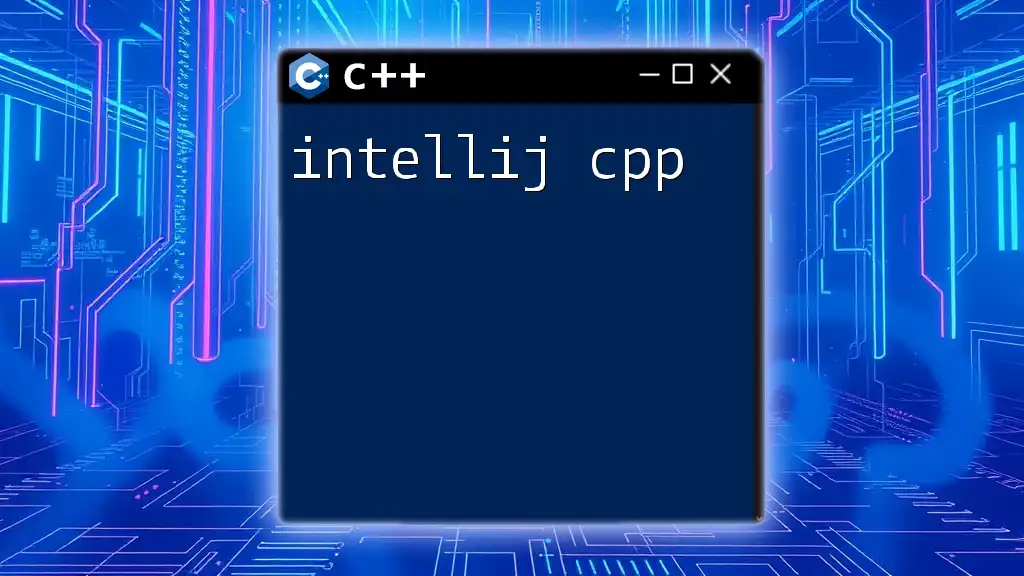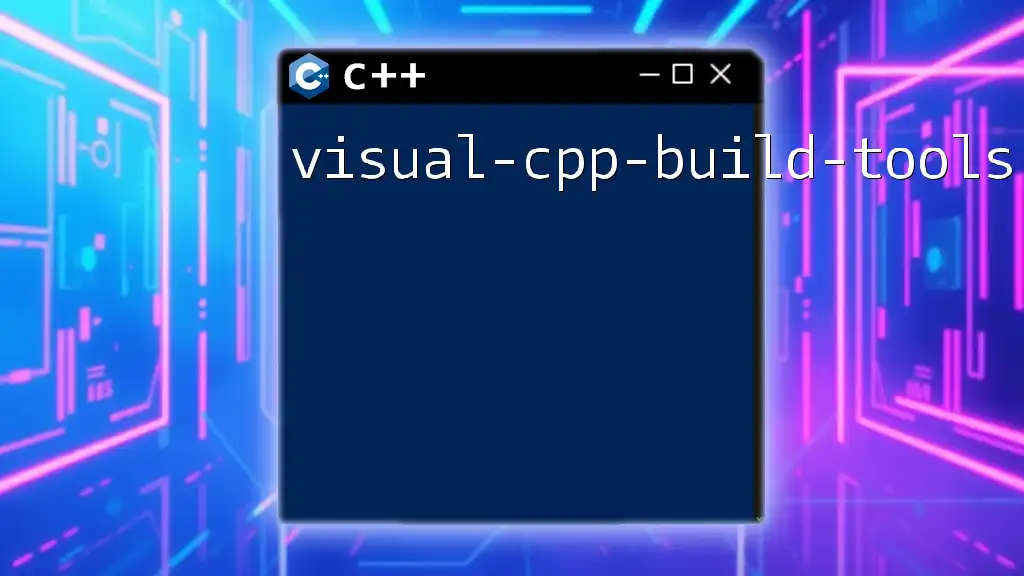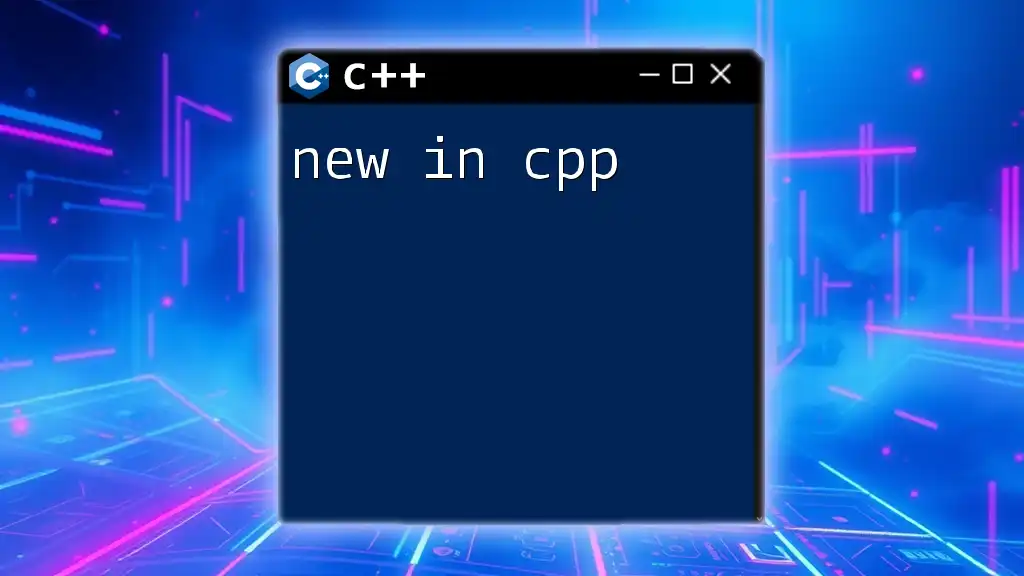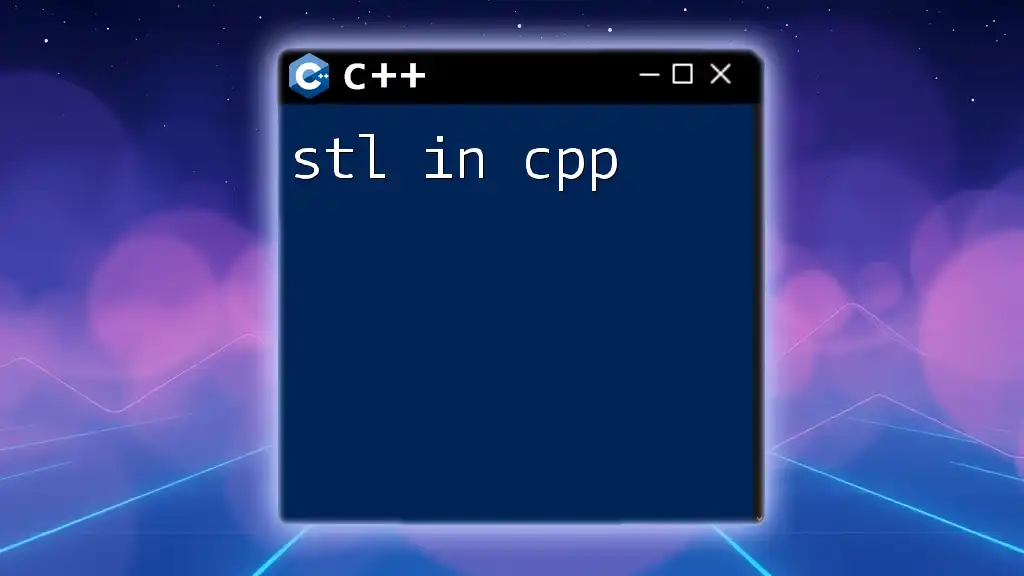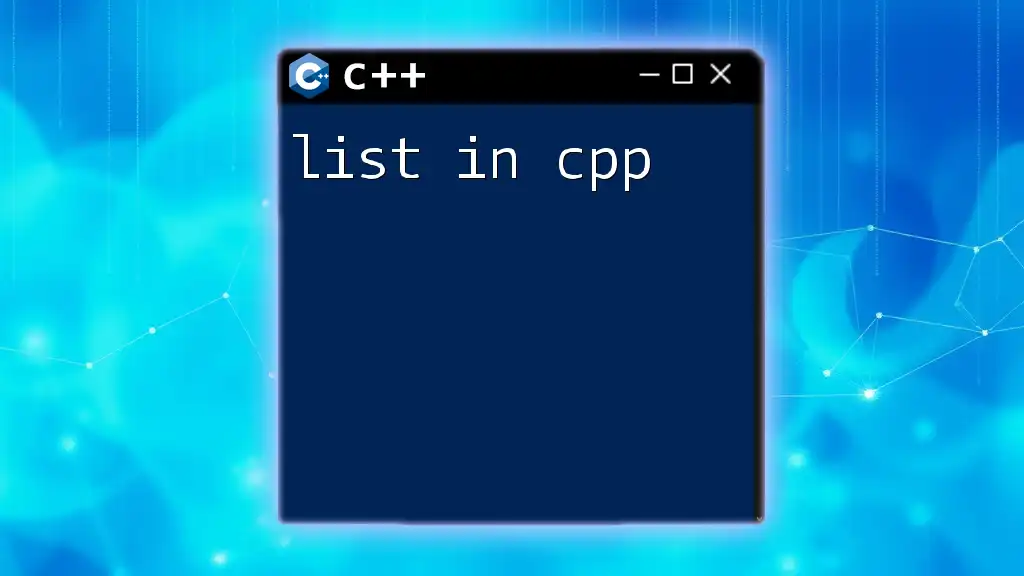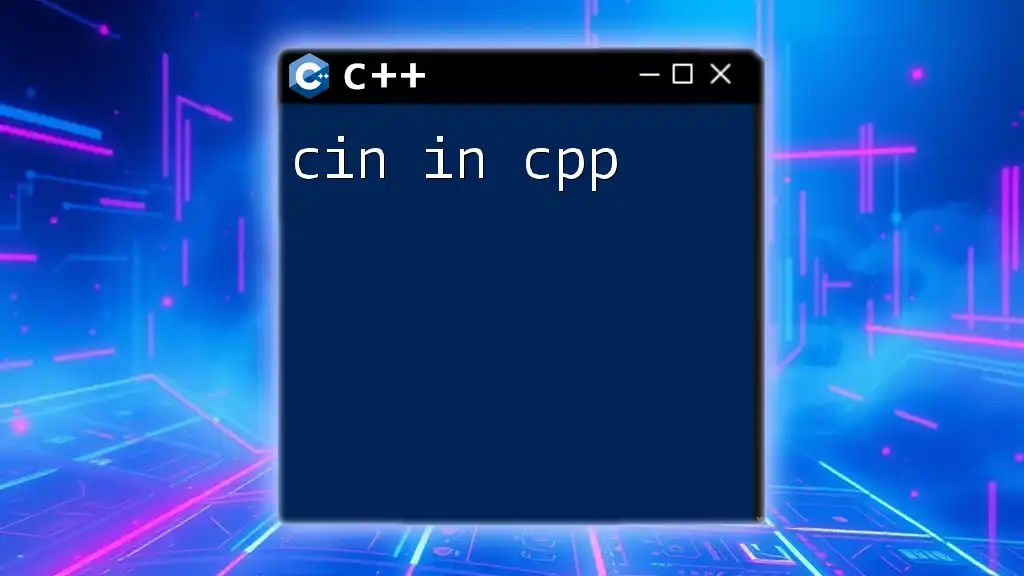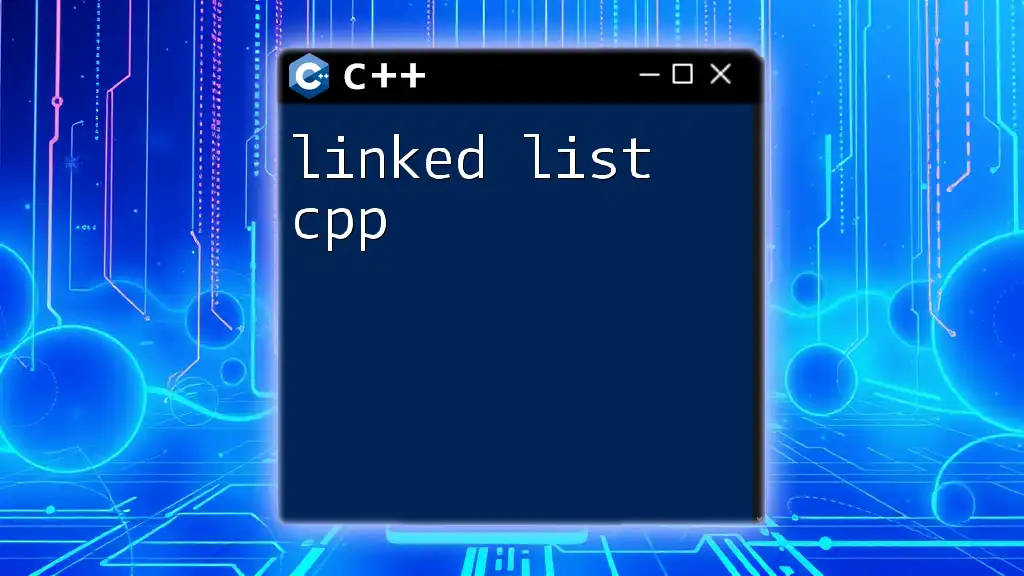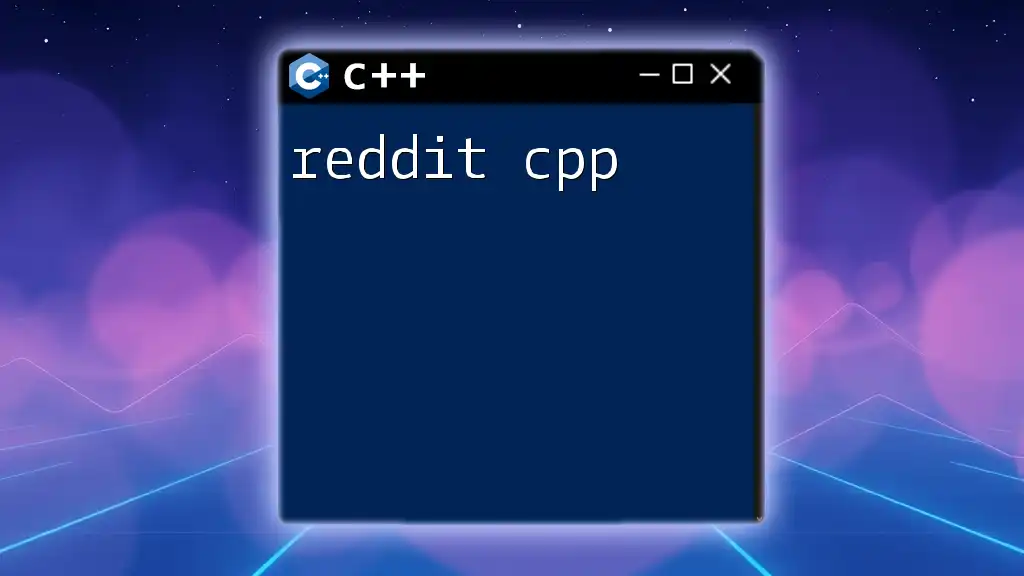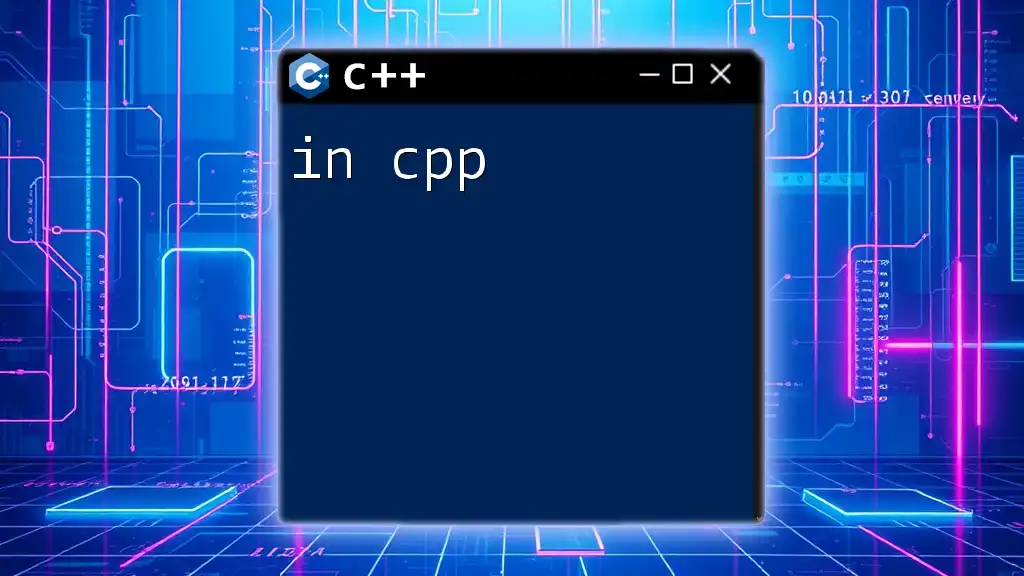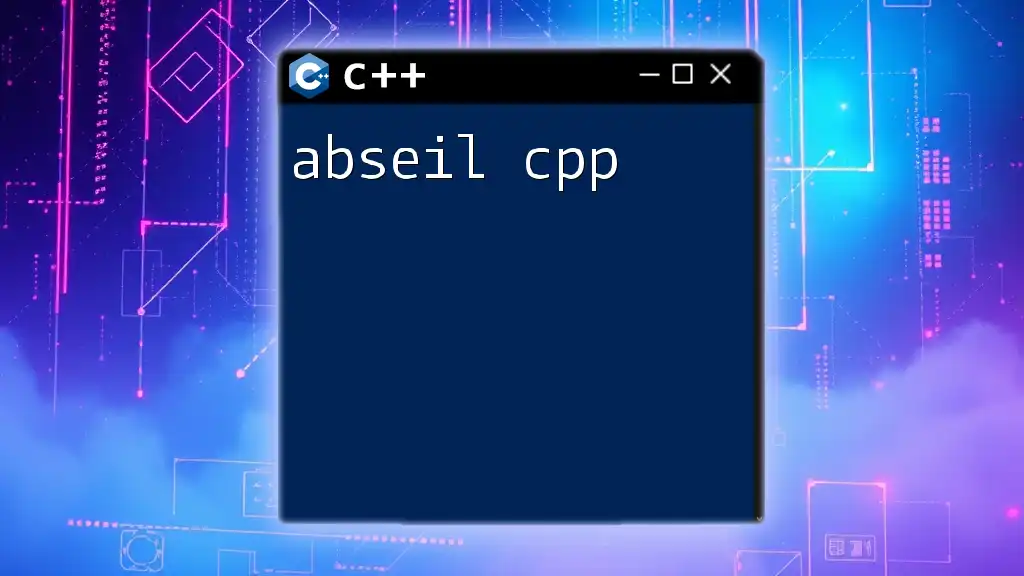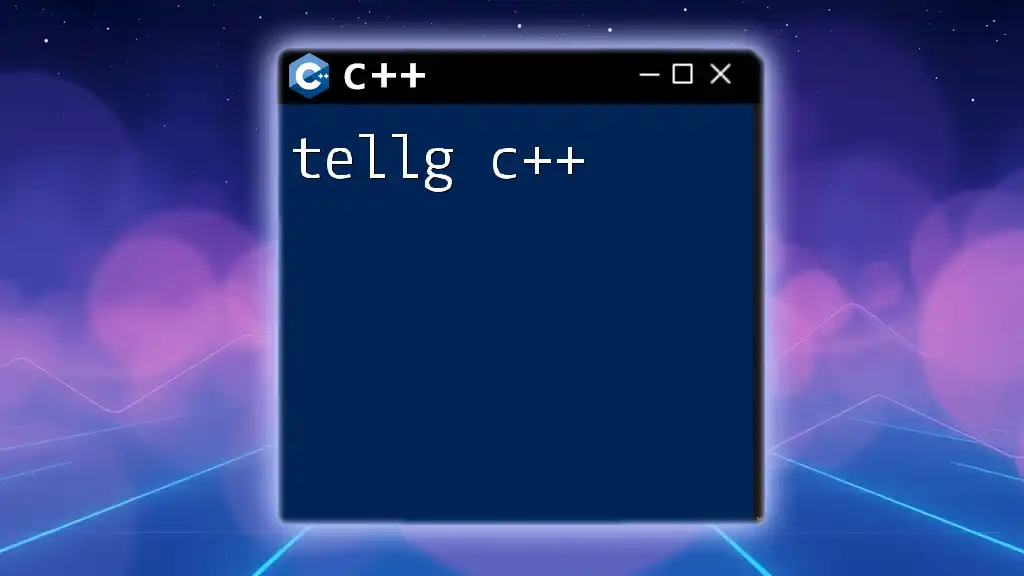IntelliJ IDEA offers robust support for C++ development through the use of plugins, enabling developers to write, debug, and manage C++ code efficiently.
Here's a simple C++ program example:
#include <iostream>
int main() {
std::cout << "Hello, World!" << std::endl;
return 0;
}
Getting Started with IntelliJ IDEA for C++
To begin your journey with IntelliJ CPP, the first step is to install the IDE on your system.
Installation of IntelliJ IDEA
-
System Requirements: Before installation, ensure your system meets the necessary requirements, such as the supported operating systems and RAM specifications. IntelliJ IDEA works efficiently on Windows, macOS, and various Linux distributions.
-
Step-by-step Installation Guide:
- Visit the JetBrains website and download the appropriate version of IntelliJ IDEA.
- Run the installer and follow the prompts to complete the installation process.
- Once installed, launch the application to initiate the setup.
Setting up C++ Plugins
-
Finding and Installing the C++ Plugin: After installing IntelliJ IDEA, you'll want to enhance its functionality for C++. Go to `File` > `Settings` (or `IntelliJ IDEA` > `Preferences` on macOS), then navigate to `Plugins`. Search for "C++" and install the relevant plugin.
-
Configuring the C++ Development Environment: Post installation, configure your build system settings, such as CMake or Makefile, according to your project requirements. You can specify these settings under `File` > `Project Structure`.
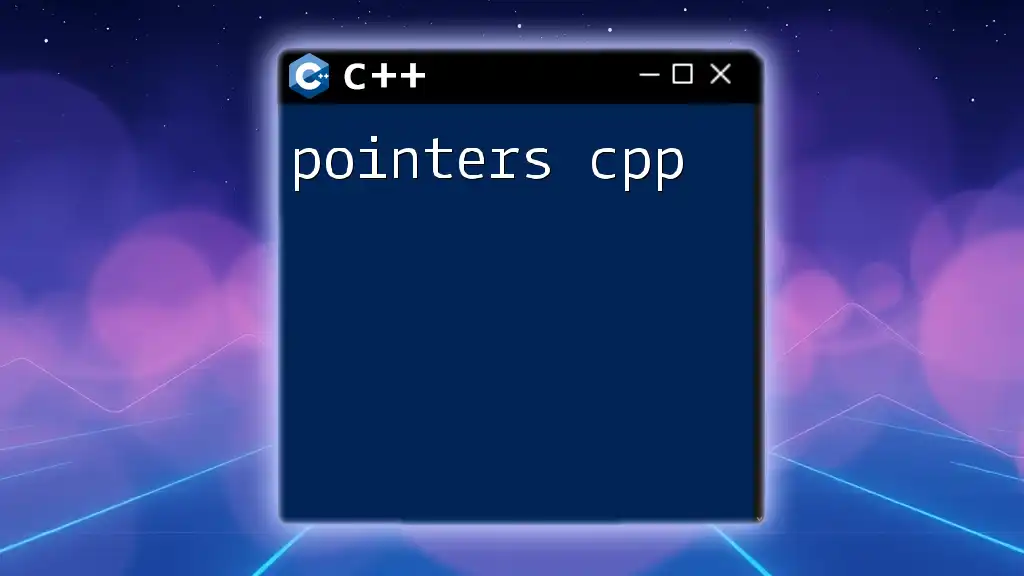
Creating Your First C++ Project in IntelliJ
Project Structure and Navigation
Upon creating a project, understanding its layout is vital. The Project Explorer pane is your primary navigation tool, where you'll find folders for source files (`src`), headers, and possibly a `CMakeLists.txt` file if you're using CMake.
Writing Your First C++ Program
Now, let's dive into writing a program. A classic starting point is the Hello World application. Simply create a new `.cpp` file and enter the following code:
#include <iostream>
int main() {
std::cout << "Hello, World!" << std::endl;
return 0;
}
This code introduces you to basic C++ syntax, including libraries, the main function, and output statements.
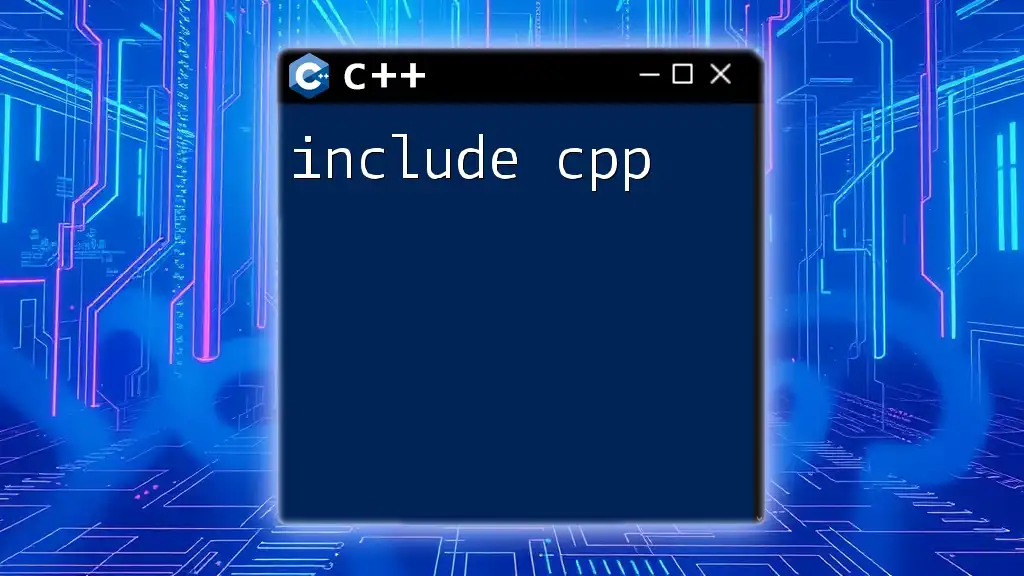
IntelliJ IDEA Features for C++ Development
Code Completion and Suggestions
One of the greatest advantages of using IntelliJ CPP is its robust code completion feature. As you type, IntelliJ suggests possible command completions based on the context. This feature speeds up the coding process and enhances productivity significantly.
Error Detection and Highlighting
IntelliJ IDEA provides real-time error detection. Syntax errors will immediately be highlighted, accompanied by quick-fix suggestions. For instance, if you forget to include a semicolon, the IDE flags it and often offers an option to automatically add it.
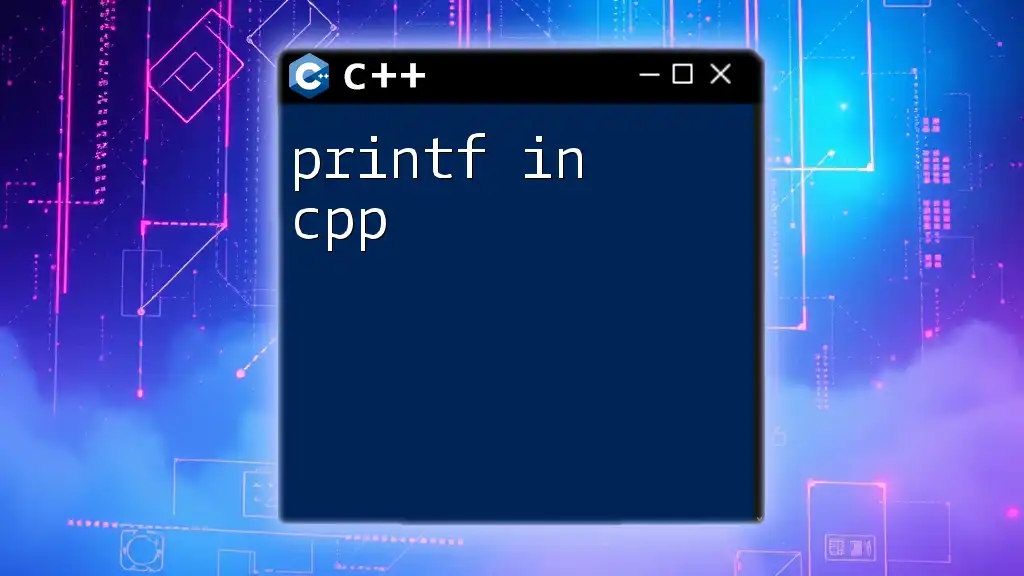
Advanced Tools and Features in IntelliJ IDEA for C++
Debugging C++ Code
Debugging capabilities in IntelliJ IDEA are impressive. To set breakpoints, simply click on the left gutter next to the line number. When you run your application in debug mode, the execution will pause at these breakpoints, allowing you to inspect variables and evaluate expressions in real time.
Refactoring and Code Navigation
Refactoring tools help maintain clean and efficient code. For example, you can easily rename functions or variables by right-clicking the identifier and selecting Refactor > Rename. This automatically updates all references in your project.
Version Control Integration
Integrating version control systems like Git is seamless. You can clone repositories, commit changes, and push updates directly from the IDE. Simply navigate to `Git` > `Add`, and then use the integrated terminal for more advanced version control commands.
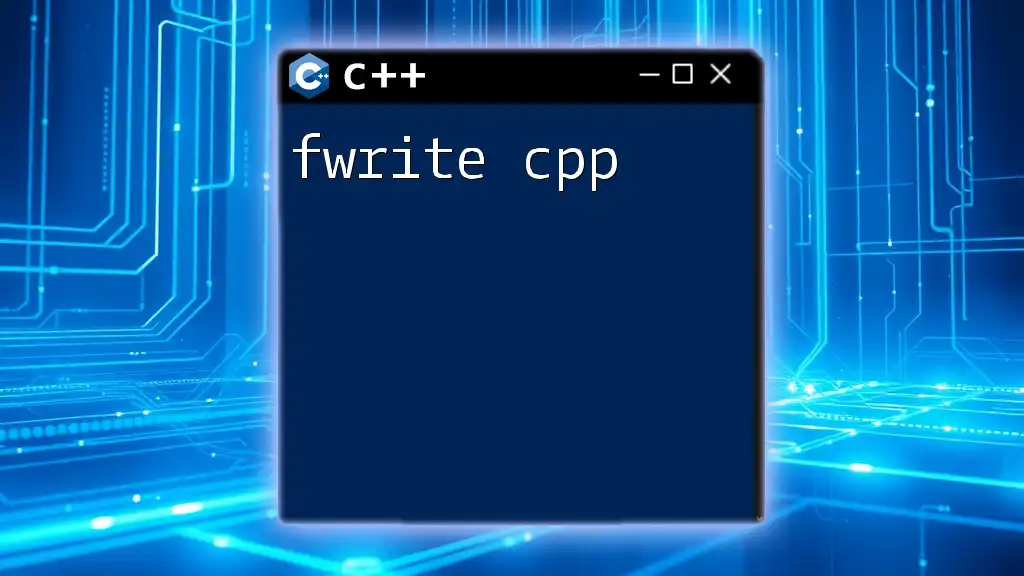
Writing and Running Tests in IntelliJ IDEA C++
Setting Up a Testing Framework
To ensure your code works correctly, establishing a testing framework is crucial. Popular frameworks for C++ include Google Test and Catch2. You can integrate these by adding the necessary libraries to your project.
Writing Unit Tests
Once your testing framework is in place, writing unit tests for your code becomes straightforward. For instance, using Google Test, you can create a simple test for your Hello World function like this:
#include <gtest/gtest.h>
TEST(HelloWorldTest, BasicAssertions) {
EXPECT_EQ(1, 1); // This test will pass
}
Running and Evaluating Tests in IntelliJ
You can run your tests directly from the IDE. Right-click on your test file and select Run 'All Tests', and IntelliJ will provide feedback on each test's success or failure, highlighting areas needing attention.
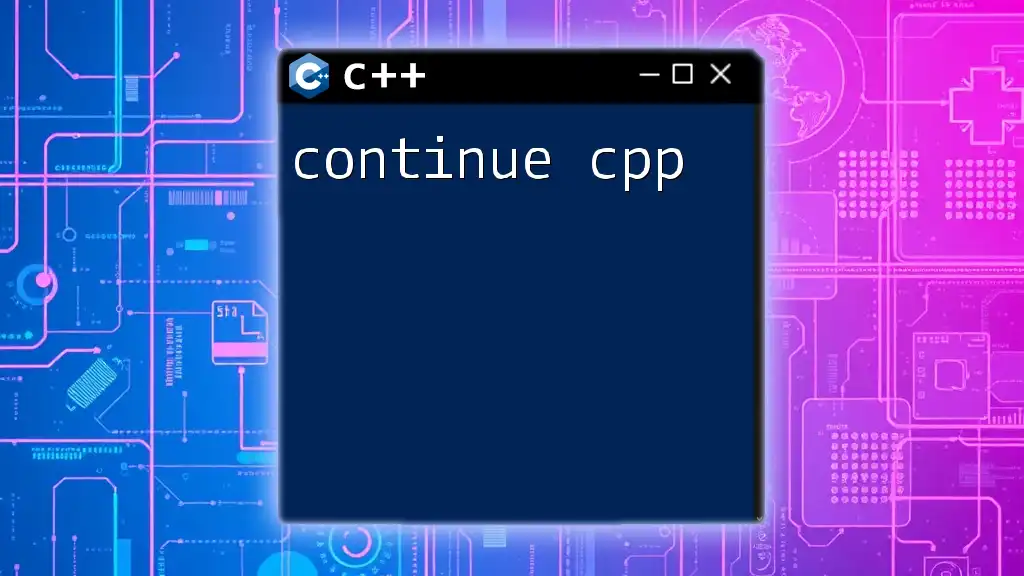
Tips and Best Practices for C++ Development in IntelliJ IDEA
Keyboard Shortcuts for Efficiency
Mastering shortcuts can drastically enhance your workflow. For instance, Ctrl + Space activates code completion, while Ctrl + Shift + F10 runs your current file. Familiarize yourself with IntelliJ's list of shortcuts to optimize productivity.
Customizing the IntelliJ Interface
The flexibility of IntelliJ allows you to customize its appearance. Experiment with different themes and fonts under `File` > `Settings` > `Appearance & Behavior` to find a setup that's visually comfortable for coding.
Utilizing Tools and Plugins for Enhanced Productivity
IntelliJ supports numerous plugins that can increase your coding efficiency. Consider exploring plugins like Clion Plugin, which offers additional support and functionality specifically for C++ developers.
Keeping Your Project Organized
A well-structured project is easier to navigate and maintain. Use clear naming conventions for files and folders, keep your code modular, and regularly comment your code to explain complex logic.
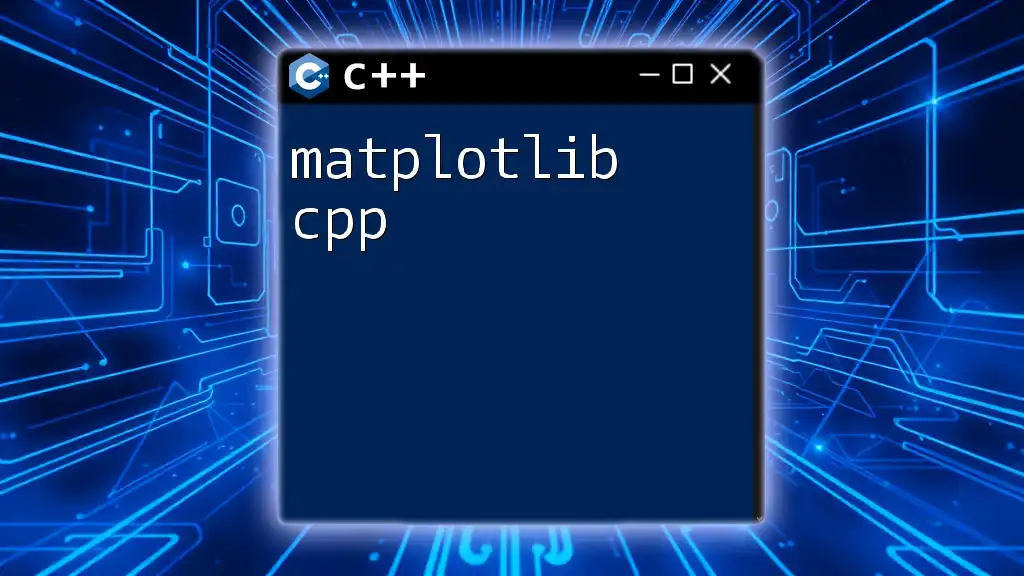
Troubleshooting Common Issues with IntelliJ C++
Compilation Errors and Fixes
Compilation errors can often be perplexing. When encountering such issues, pay close attention to the error messages provided by IntelliJ. These messages often pinpoint the exact line and nature of the error, allowing you to address it swiftly.
IntelliJ Not Recognizing C++ Files
If IntelliJ is not recognizing your C++ files, double-check that the C++ plugin is installed and enabled. You may also need to set the file types under `File` > `Settings` > `Editor` > `File Types`.
Performance Issues and Optimizations
Should you experience sluggish performance, make sure to allocate sufficient memory to IntelliJ and close unnecessary applications running in the background. Adjust your project settings to utilize efficient build configurations.
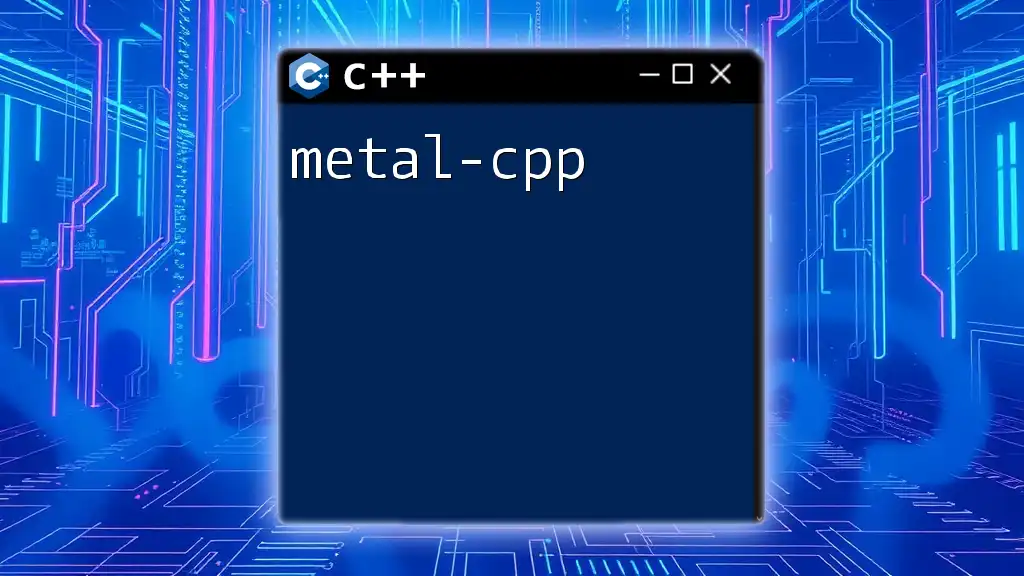
Conclusion
Using IntelliJ CPP can significantly streamline your C++ development process. With its comprehensive features and supportive environment, it empowers developers to write, debug, and test code effectively. Embrace this robust IDE to unlock your potential in C++ programming.
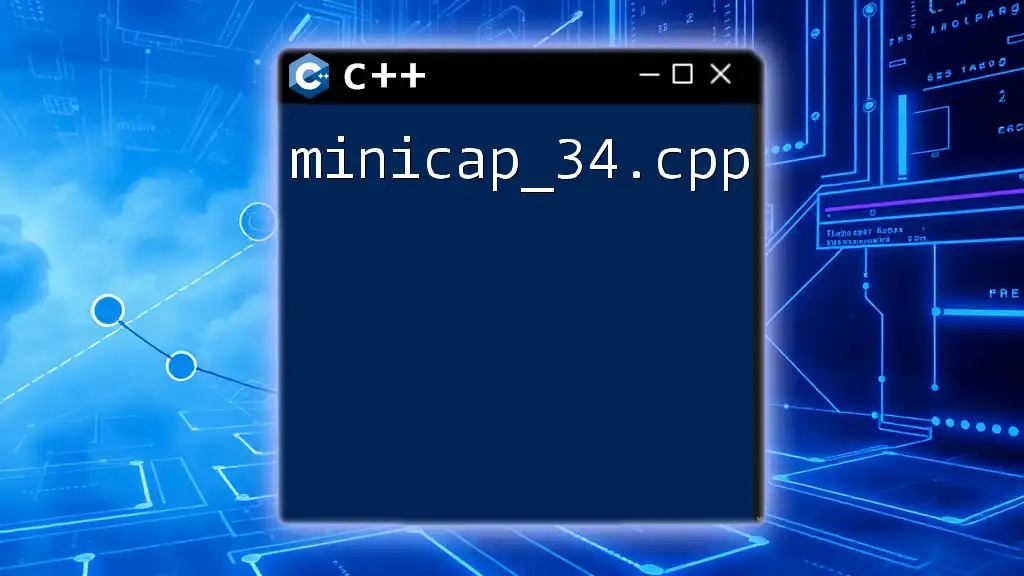
Additional Resources
For an in-depth understanding, consider exploring the official IntelliJ documentation. You can also find valuable video tutorials on C++ development, and engage with community forums for additional support and knowledge sharing.

